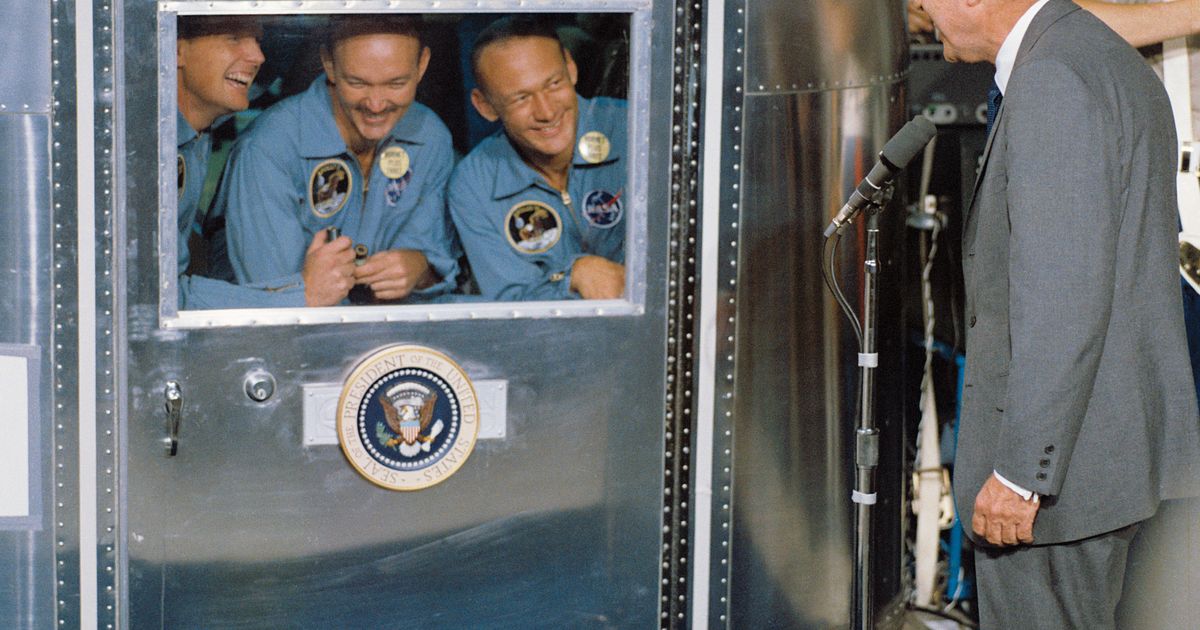The Backstory: The dark side of the moon-landing conspiracy theory

A QUESTION FOR the modern Age of Disinformation: What if the continued existence of moon-landing conspiracy theorists were, in itself, a hoax designed to keep us from getting too secure in our ability to sort fact from fiction?
Sorry. No such luck, probably. And the very thought of it makes one’s head swirl in an endless lather-rinse-repeat cycle that’s too similar to the mental machinations faced when conjuring time travel, what’s beyond the universe, the design of the 2-liter soda bottle and other unfathomable aspects of human existence.
Fact is, facts still matter. Just about everyone agrees with that. But the definition of “fact,” something the non-mouth-breathing public once took for granted, keeps shifting. Your facts are now not necessarily someone else’s facts. And the once-fruitful process of establishing common ground on the subject — scientific and logical deduction — has become quaint anachronisms. Result: chaos, or something close.
It’s enough to make many of us — not the least of which, the nation’s journalists, who are alternately crushed by hopelessness or emboldened (sometimes both) by the unwelcomed challenge — throw up our hands and become spokespeople for some obscure public agency, where debates are more focused on lunch spots than existential crises.
One way to resist that is to think out loud about the problem, throwing it out on the table for public dissemination. And that’s what we’ve tried to do this week, seizing the opportunity of the 50th anniversary of America’s moon landing to examine the remarkable fact that we, as a nation, still can’t fully agree that this even happened.
What does that say about us? Little good. To expand upon the cliché: We can put a person on the moon, but we can’t even agree that we put a person on the moon.
Seriously, the intrusion of conspiracy theory, once sort of a quaint absurdity, into public policy on matters of life and death is one of the most troubling aspects of current U.S. political reality. The moon-landing conspiracy theory, which never seems to die, stands as one of the most overt, nonsensical, but persistent of these fantasies. Given the anniversary, we thought probing its role in questioning our agreed-upon national story might be useful, or at least interesting.
Then again, everything we’ve said here might be just another part of the conspiracy. Judge for yourself. And good luck convincing your neighbor.
This article has been archived for your research. The original version from The Seattle Times can be found here.
